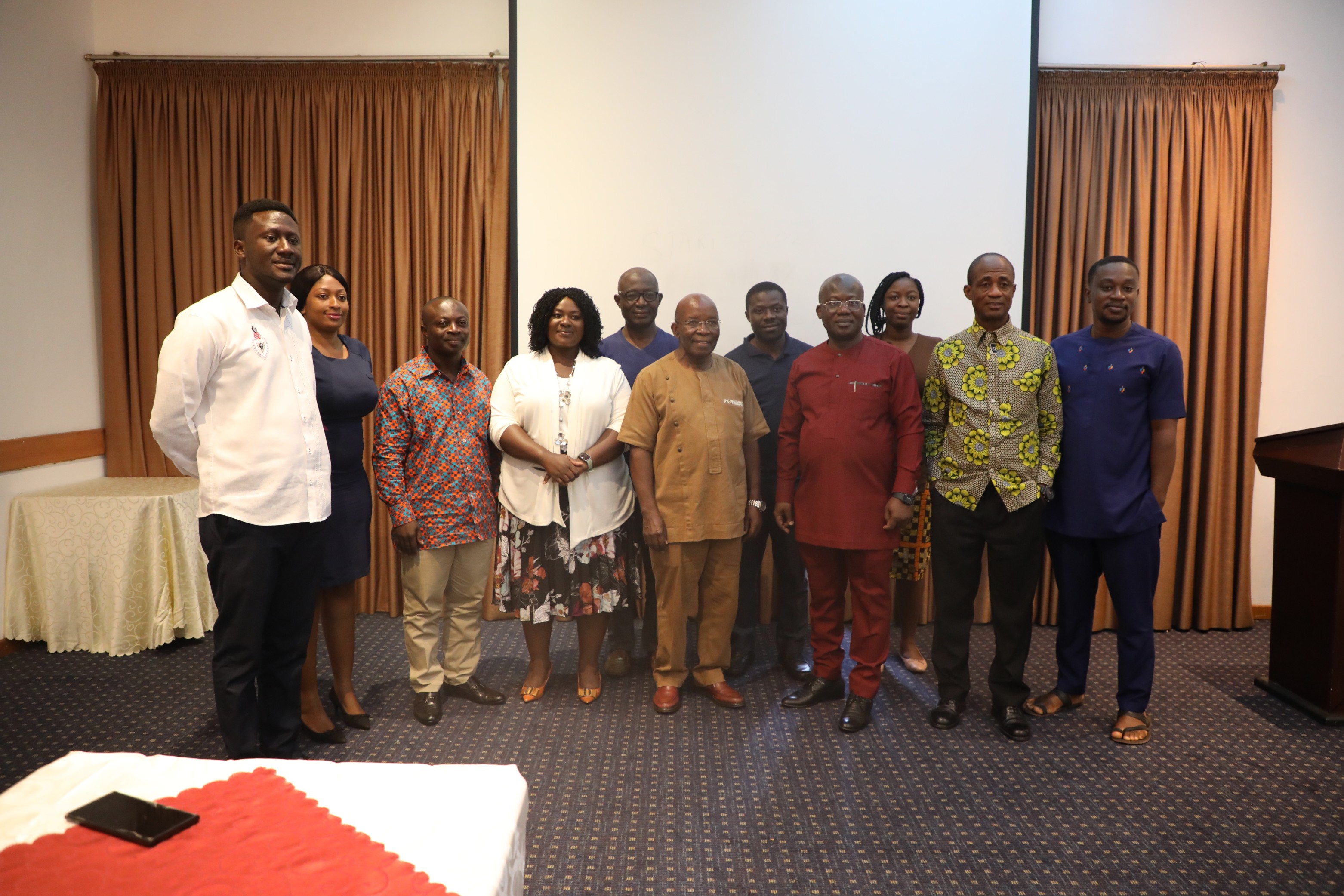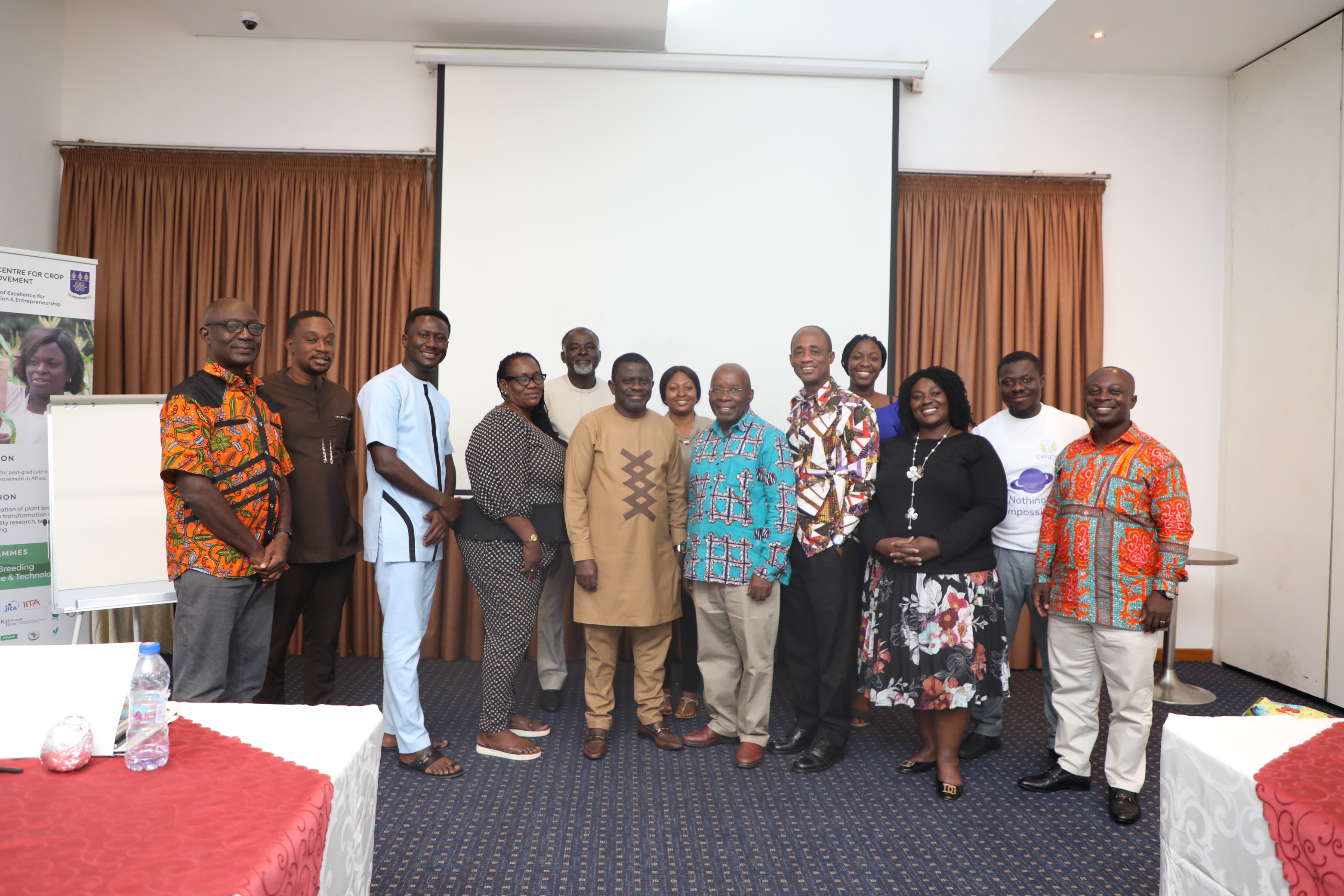The West Africa Centre for Crop Improvement (WACCI), University of Ghana, with support from an Alliance for Food Security has held a 3-day workshop to assess the tomato value chain in Ghana. The Alliance is comprised of the Australian Centre for International Agricultural Research (ACIAR), the Crawford Fund, and the Syngenta Foundation for Sustainable Agriculture (SFSA). The workshop sought to consult with value chain actors to estimate the market size of the tomato industry in Ghana and propose the establishment of an apex body that will consolidate the tomato value chain to focus on production and value addition.

Click here for full publication.
WACCI’s Director, Prof. Eric Danquah, in opening the workshop, commented on Ghana’s dependence on imports citing that fresh tomato imports alone amount to hundreds of millions of dollars. “This is a huge sum to expatriate for a low-income country with such vast arable land” he said. Acknowledging the effort of the Government of Ghana in support of the agricultural sector through the Planting for Food and Jobs, and the Ghana CARES “Obaatanpa” programme, the Director called for more investment in the sector especially in the area of training the human capacity needed to develop new varieties.
“It is unfortunate that as recently as 2020, Ghana did not have a single tomato scientist trained at the PhD level working in the national agricultural research systems. It took us at the West Africa Centre for Crop Improvement to innovate and look for funding to train tomato geneticists and breeders. The payoffs from our leadership in the training of plant breeders at the PhD level in Africa for Africa is there for all to see and we hope that the government would prioritize investments in science technology and innovation for agricultural development”, he said.
Delivering the purpose of the workshop, Prof. Pangirayi Tongoona, WACCI’s Associate Director for Breeding Programmes, mentioned that Ghana’s high demand for imported tomatoes compared to neighbours in the sub-region is worrying and makes the country vulnerable, referring to some of the recent economic challenges. According to him, these factors made the workshop timely, as it brought together stakeholders to properly define the challenges of the tomato industry, and chart a path to resolving them.
In putting financial value on the industry, the participants at the workshop, comprising both public and private sector actors, concluded that an effectively functioning tomato value chain in Ghana could facilitate the production of 2.9 million tonnes of fresh tomatoes and lead to the creation of value in excess of US$ 1 billion per annum. The participants identified a limited number of indigenous breeders to develop suitable varieties, an unreliable seed and agro-inputs supply regime to support farmers, limited access to funding for mechanization, and the perennial food waste due to poor access to market, as some of the challenges facing the industry.
These factors led to the recommendation to establish an apex body to regulate the activities of all stakeholders in the tomato value chain. The proposed name for the institution is the Integrated Tomato Value-Chain Company Limited (ITVCL). The vision for establishing this entity is “to achieve and sustain national self-sufficiency in tomato production.” The ITVCL will promote the effective and efficient continuous production, processing and marketing of quality tomato and tomato products in Ghana. The ITVLC will be a private limited liability company with minimal shareholding of government, with the outlook of growing into a Public Limited Liability Company.
At the end of the workshop, a comprehensive business case was developed to guide potential stakeholders including government, civil society, financial institutions, and other key stakeholders along the tomato value chain and to support the establishment of ITVCL. The expected benefits of the ITVCL include the retaining of over $1 billion of forex in the country, employment in the formal and informal sectors, the support of other agri-value chains that are connected to the tomato value chain, and support for smallholder farmers, among others.
The participants of this workshop were Prof. Pangirayi Tongoona (Associate Director, Breeding Programmes, WACCI), Dr. Agyemang Danquah (Coordinator, Academic Programmes, WACCI) Ms. Esther Agyekum (Assistant Director and Head of Horticulture Department, MoFA) Mr. Kwasi Wih (Head of the Ghana Seed Inspectorate Division) , Dr. Michael Osei (Senior Scientist, CSIR-CRI), Mr. Kwame Boateng (Consultant, WEDDI Tomato Factory), Mr. Samuel Yeboah (Deputy Chief Operating Officer (agribusiness) GIRSAL), Prof. Walter Alhassan (Director, Biotechnology and Stewardship for Sustainable Agriculture in West Africa), Ms. Vivian Smith (Public Relations Officer, GNTTTA), Mr. Eric Tuffuor (Chairman, GNTTTA) and Ms. Enyonam Damesi (Communications Manager, WACCI).

Click here for full publication.
